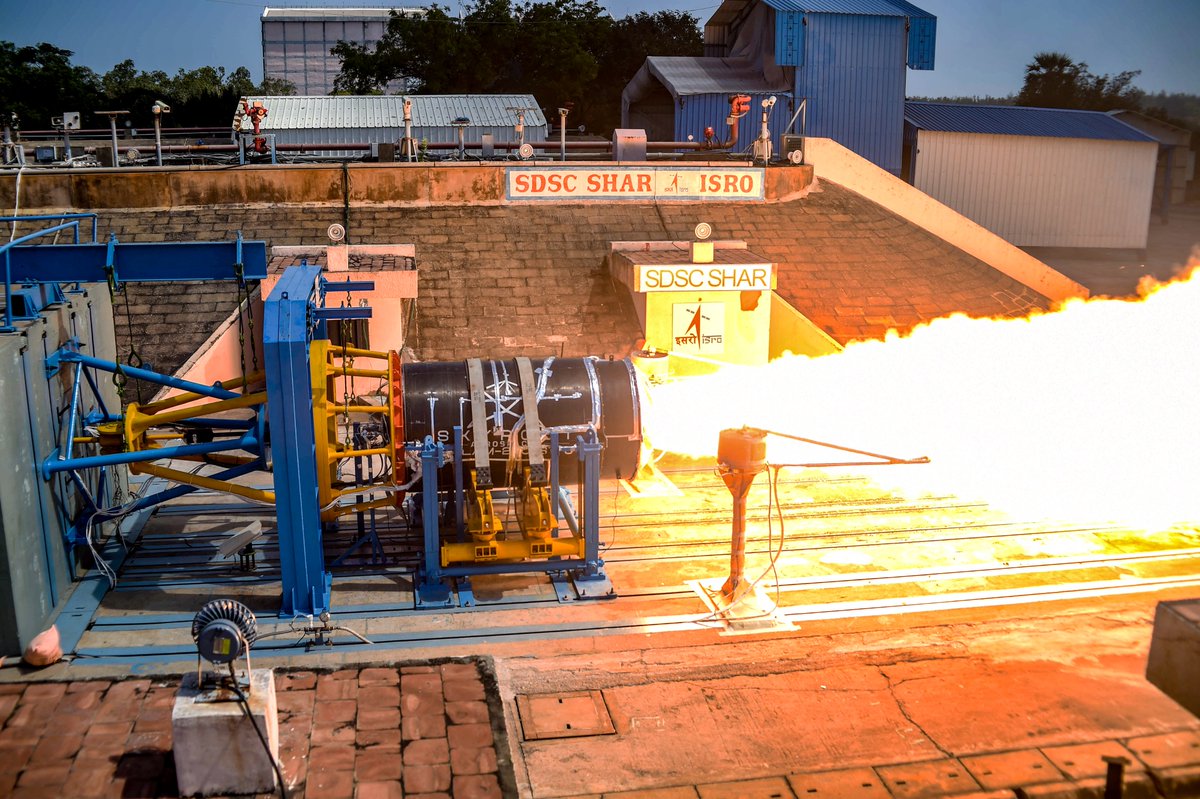
Indian private space company, Skyroot Aerospace, has inched closer to making history with the successful test firing of the Kalam-250, the powerful second-stage engine for their Vikram-1 rocket. This crucial milestone puts them firmly on track for their first orbital launch.
Conducted at the Indian Space Research Organisation's (ISRO) propulsion test facility in Sriharikota, the test saw the Kalam-250 engine ignite flawlessly and operate within all expected parameters. The rocket's flex nozzle control system, vital for precise in-flight steering, also performed successfully.
Skyroot engineers meticulously gathered data across 198 channels during the test. This wealth of information will provide invaluable insights into the engine's performance, ensuring optimal function during the actual launch.
The test marked a momentous occasion for the Skyroot team, with members witnessing the event live at Sriharikota. This shared experience is sure to boost morale and solidify their commitment to achieving their historic goal.
The Kalam-250, with a thrust of 235 kN in vacuum, stands as the largest propulsion system ever built and tested within India's private space sector. This achievement signifies a major leap forward for the country's rapidly developing space industry.
Skyroot expressed gratitude to ISRO for access to their facilities and IN-SPACe (the Indian government nodal agency promoting private space ventures) for enabling this critical test.
Conclusion
The successful Kalam-250 test represents a giant stride forward for Skyroot.With the engine validated and a motivated team fueled by their success, the Vikram-1 launch seems poised for a summer liftoff.
This launch has the potential to redefine India's private space ambitions and further strengthen the nation's position in the global space race.
